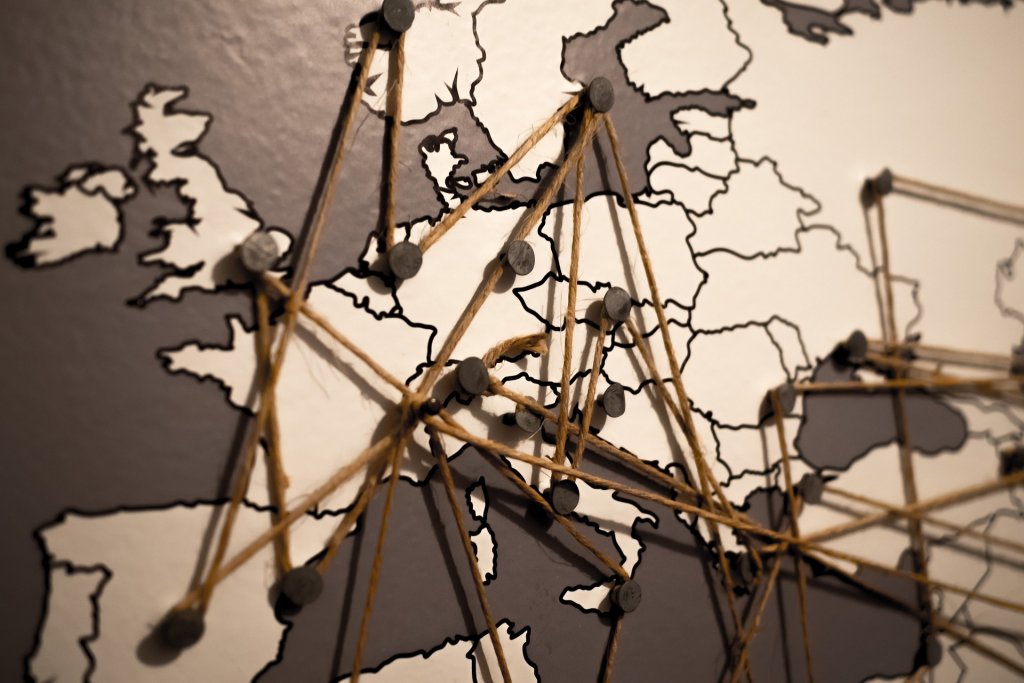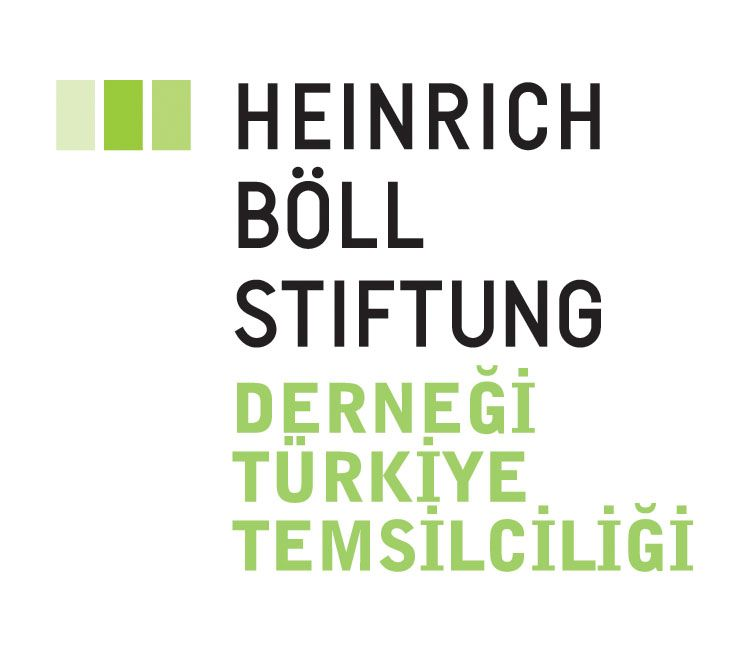
Almost everyone agrees that Russia’s military intervention in Ukraine on February 24, 2002, caused irreversible shocks on the geopolitical fault lines of the current world order. The aftershocks of the war have created a geopolitical tsunami on the international agenda. We are witnessing a period of increasing uncertainties and geopolitical challenges in the global system, as opposed to the discourse that the current international system, or the “American world order” expressed in academia and the media, is wearing out. Thus, globalization has come to an end.
The global geopolitical tsunami has increased the current uncertainties so much so that concepts such as competition, uncertainty, power struggle, and great power competition have pushed the concepts such as cooperation, welfare, and peace to the background in the final declarations and strategy documents of the leaders’ summits of international organizations and the documents related to national security. While the world spent the first quarter of the 21st century with uncertainties, at the dawn of the second quarter, the probability calculations of the use of nuclear weapons from the Cold War period, which are now thought to be almost in the background of history, came to the forefront of international news bulletins. So much so that US President Joe Biden, in his speech on October 7, mentioned that the world was at the point where it was closest to nuclear war after the Cuban Crisis of 1962.
In this process, two powers that can keep the developments related to the new world order at a manageable point come to the fore: the USA and China. Serious signs have emerged that multi-layered relations will develop around a two-block structure led by these countries in the new order. For example, experts closely following China-Russia relations state that Moscow’s balance of power against Beijing began to decline after the Russia-Ukraine War. At the Shanghai Cooperation Organization (SCO) summit convened in Samarkand on September 15-16, 2022, China refrained from giving the support that Russia expected from it. However, 20 days before the war that started on February 24, 2022, when the two countries’ leaders met at the opening of the Winter Olympics, they had defined the relations between the two countries as a “very close inclusive strategic partnership.” In fact, according to Putin, there was “a relationship incomparable to anything in the world” between the two capitals. This lengthy joint statement of 5,000 words, dated February 4, stated that “the first strong change of the new era is multipolarity.”
On the other hand, in a joint statement released on September 16, SCO leaders stated that international challenges and threats are getting increasingly complex, the world’s situation is getting dangerously worse, existing local conflicts and crises are intensifying, and new conflicts are emerging. The way out of the current threats and challenges for the SCO leaders was the transition to a multipolar worldorder as opposed to the current American-led unipolar liberal international order. Russian leader Vladimir Putin also stated that two weeks after the declaration, the old unipolar hegemony is inevitably collapsing. In his speech at the beginning of October, Putin said that the West is ready to take every step to protect the neo-colonial system, that it does not respect the rights of billions of people in any way, that the Russians are fighting for justice and peace, and that the collapse of Western hegemony is inevitable.
Meanwhile, when Chinese leader Xi Jinping announced the Global Security Initiative (GSI) in April 2002, he emphasized the development of the world’s common security. He opposed the security architecture created by the US alliances and partnerships. According to Xi, China’s understanding of global security to be implemented envisaged a harmonization of the security order in line with the interests of the Chinese Communist Party (CCP). Xi’s report to the party at the 20th CCP Convention held in October 2002 emphasized the party’s stance against Taiwan’s independence by referring to the ‘Taiwan issue’, which constitutes the hottest spot between the USA and China. Xi also referred to the official inclusion of Taiwan in China as “a responsibility placed on his shoulders.” It was also included in the CCP’s charter, reinforcing Xi’s leadership process, and proclaiming to the world that the CCP could resolve conflicting issues by force.
On the other hand, the views of the US-led Western Bloc, which will be the basis for the predictions about how global security will be shaped, began to be voiced loudly right after Russia attacked Ukraine. The document published by the European Union titled “Strategic Compass” highlighted great power competition and possible conflicts as the biggest test of today’s security and defense policies. The subtitle of the first section of the document, titled ” The World We Face”, was determined as ” the return of power politics in a competitive multipolar world “. According to the document, the strategic environment faced by the EU was surrounded by instability and conflict, with the ongoing war on its borders. The EU envisaged a union structure surrounded by wars, contests, and tensions in the next ten years, and that highly competitive power policy would shape this structure. In the words of the EU High Representative for Foreign Relations and Security Policy, Joseph Borrell, Europe is in a strategic awakening, and raw power politics now shape the world.
On the other hand, the Strategic Concept, adopted at the NATO leaders’ summit held in Madrid in June, was written in the geopolitical context of rising strategic competition, instability, and the rule-based liberal international order under attack by authoritarian states. In this context, NATO looks at the world order with an approach that prioritizes deterrence and defense. In this framework, Russia was considered the “most important and direct threat to the alliance”, while China was defined as the “country to be confronted at a strategic level” for the first time in parallel with the developments in the Indo-Pacific region against the security of the allies.
It seems that the new order of the world will witness a fierce and intense great power struggle between the US-led West and the Sino-Russian bloc against it. Notably, the situation in great power competition points out that the former US Secretary of State Henry Kissinger’s statement that “we are on the verge of a new Cold War” in a speech in China in 2019 has gone beyond. The bi-block and multilateral geopolitical tsunami will influence the world order after the geopolitical shocks in this new Cold War environment.
Obviously, the new world order, which is understood to be shaped by global power competition, points to a future full of wars, conflicts, and intense instability for Turkey, at least in the Anatolian geography and its close regions. It can be said that Turkey is in an almost 360-degree crisis circle, especially with the addition of energy crises and bilateral tensions to its southern and northern borders, which have been buried in hot armed conflicts and de facto instability for the last thirty years.
There is a period in which Turkey’s traditional southeast anchor feature in the NATO defense and security alliance is questioned within the framework of its relations with Russia, which is seen as the number one threat and adversary in the NATO Strategy Document. Defense, construction of critical energy facilities, non-participation in the US, NATO, and EU sanctions in the Russia-Ukraine War, maintaining direct contacts with the Kremlin, and the movement of Russian oligarchs and capital in Turkey are criticized both in Brussels and in other Western capitals, especially in Washington. In this sense, the most striking issue for Turkey is the two processes that started to take shape before Russia attacked Ukraine.
The first is the fault line that the USA is trying to create on the traditional security axis in the Baltics-Black Sea-Adriatic geography in the European continent within the framework of bilateral relations. Within the Three Seas policy framework, Washington’s view of the Ankara administration is essential in blocking Russia’s expansionist policy that threatens European security. It is seen that the axis passing through Anatolia, according to the traditional Atlantic view of the Cold War, has turned into an approach centered mainly on the Greek Peninsula, especially in limiting the Russian influence in terms of military planning. It is seen alive in the mutual defense cooperation, which has an important strategic dimension, between Washington and Athens, where the military logistics center of the Poland-Hungary-Romania-Bulgaria-Moldova axis is vital in the historical sense, has started to be planned over the Greek Peninsula.
With the signing of the said agreement, the tensions between Ankara and Athens in the Aegean Sea in October 2019 and later were not limited to this area. The traditional Turkish-Greek tension went beyond the Aegean line and reached the Libya-Cyprus-Egypt-Israel line. This dimension of the Turkish-Greek tension and, accordingly, the critical importance of the Eastern Mediterranean and Levant geographies have started to take place in the official declarations of the EU and NATO.
The turning point of the relations at the lowest level in history on the Washington-Ankara line was the July 15 coup attempt. The military, political and economic aid received from Washington by the PKK-linked YPG/PYD, which constitutes the main component of the Syrian Democratic Forces, and Ankara’s lack of support from its traditional ally, threatens Turkey’s national security. Another critical issue is the sanctions imposed on Turkey, in connection with the tension created by Turkey’s preference for the non-NATO Russian S-400 air defense system for its defense needs. One of the concrete signs of the low point of Turkish-American relations as of October 2022 is the fact that no official visit from the USA to Turkey at the ministerial level has been made from the last period of the Trump administration to almost the first two years of the Biden administration. The axis shifts in Turkish foreign policy, hotly debated in the early 2000s, seem to have been carried to the present day in a different dimension.
The second process, especially after the Russia-Ukraine War, is that we are witnessing a period in which Turkey’s geopolitical importance has risen again in parallel with the global geopolitical developments, independent of Turkey’s initiative. Especially in a period when the Russian geography was closed in energy and trade transport lines, the “Middle Corridor” alternative that came to the agenda in the Azeri and Kazakh oil and natural gas pipelines and China’s Pacific-Europe trade line have become critical for Europe. The facilitation role of Turkey in the shipment of Ukrainian grain, which is of vital importance to the world, through the Turkish Straits is also remarkable. Although Turkey pursues a policy of active neutrality in the war, in the words of Presidential Spokesperson and Chief Advisor İbrahim Kalın, Turkey stands by Ukraine in the Russia-Ukraine War, and there is a paradigmatic change in Turkey’s relations.
How the global geopolitical tsunami will define Turkey’s position in the new world order seems to have found itself in President Erdogan’s statement: “Turkey has an exceptional position as the Asian in the West and the European in the East.” An opportunity is also seen for Turkey in the world order, where global threats and challenges have evolved into a two-bloc structure.

Dr. Kaan Kutlu Ataç graduated from Hacettepe University, Department of Public Administration. He completed his master’s degree in Public Administration and International Relations at the same university. Ataç received his doctorate from Hacettepe University, Department of History in 2016. Ataç, who is a lecturer at Mersin University, Department of International Relations, gives lectures at the National Defense University as a Visiting Lecturer.
To cite this work: Kaan Kutlu Ataç, “Changing World Order and Turkey ” Panorama, 25 June 2022, https://www.uikpanorama.com/blog/2023/06/25/kka-2/

This article has been prepared with the support provided to the International Relations Council and the Global Academy by the Heinrich Böll Stiftung Association Turkey Representative within the scope of the project titled ‘Foreign Policy for the 21st Century; Peaceful, Equitable, and Dynamic Turkey’.
Telif@UIKPanorama. Çevrimiçi olarak yayımlanan yazıların tüm telif hakları Panorama dergisine aittir. Aksi belirtilmediği sürece, yayımlanan yazılarda belirtilen görüşler yalnızca yazarına/yazarlarına aittir. UİK, Global Akademi, Panorama Yayın Kurulu ile editörleri ve diğer yazarları bağlamaz.

